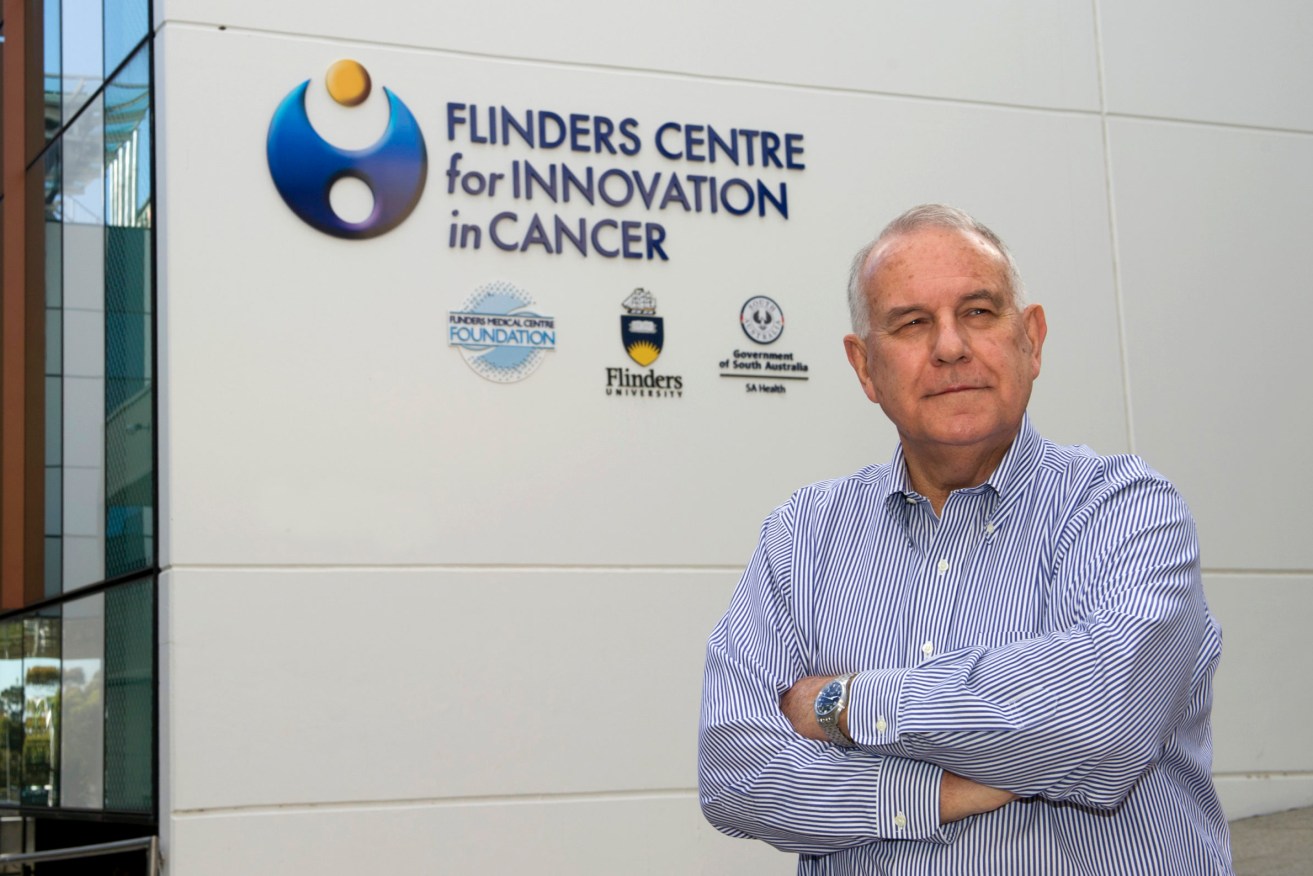
Raised by parents who, as Salvation Army officers, dedicated their entire lives to helping the less fortunate, Graeme Young seemed destined to follow in their footsteps.
Honouring the community-conscious family tradition, he graduated from Melbourne University with a medical degree in 1969 and was posted to Papua New Guinea as a Regimental Medical Officer to a training battalion near Port Moresby when called up for National Service the following year.
During this placement he cracked an ancient Papua New Guinean mystery, which became the catalyst for a distinguished career dedicated to solving the mysteries of health science.
“We were seeing side-effects of a drug to treat leprosy, which was a major problem at the time. I was doing medicals on every native PNG soldier coming into the army and I saw the chance to identify the reason,” the now Professor of Global Gastrointestinal Health at Flinders University recalls.
“They thought the explanation was an inherited gene (G6PD) defect so I developed a simple blood test and plotted the geographical/tribal distribution of this gene deficiency, finding that it was particularly common in natives from coastal regions because it protected them against malaria,” he says.
“But we also discovered a high occurrence in native soldiers from a specific region in the Highlands, which didn’t make sense, so I consulted an anthropologist who became very excited because according to folklore, this tribe had moved to the Highlands 300 years earlier and I had just provided the proof.
“It was then I realised that research had unexpected exciting consequences as well as being able to contribute to medical knowledge. I realised I wanted to do more than just being a doctor.”
Since then Professor Young’s research has gone on to influence and change entire healthcare systems on a global scale, prompting the Government of South Australia to name him the 2013 South Australian Scientist of the Year.
Announced at the Science Excellence Awards in August, the prestigious title recognises Professor Young’s instrumental role in developing the National Bowel Cancer Screening Program, as well as his tireless efforts to eradicate infant deaths from diarrhoea in developing countries.
He was also acknowledged for his integral part in establishing the Flinders Centre for Innovation in Cancer, particularly the third-floor Cancer Prevention Unit where he is based.
The title has gone to a Flinders researcher for two years running, with Professor of Biomedical Engineering Karen Reynolds named the 2012 SA Scientist of the Year.
Professor Young – who became the foundation Professor of Gastroenterology at Flinders and Regional Head of Gastroenterology and Hepatology for the Southern Adelaide Local Health Network in 1997 – says he is particularly proud of his teams’ contributions to bowel cancer screening becoming an established part of healthcare in an increasing number of countries worldwide.
“As a researcher it’s not often you get to see your work translate to changes in health care systems – there’s a huge gap between lab research and tangible community benefits.
“My research teams, to whom most of the credit really belongs, are one of the few to see their innovations and discoveries become not just practice but medical policy, on a global scale.”
As the chief investigator on a major international project, Professor Young is also influencing the global strategy on infant deaths from diarrhoea in developing countries by improving the current standard treatment using resistant starch and developing preventative measures to combat zinc deficiency.
Together with international colleagues, his teams have received almost $14 million in research grants from the Bill and Melinda Gates Foundation and studies are currently underway in Bangladesh, Malawi and India to gather the information needed to reshape global policy.
“Science is one of the main ways we can improve society and enrich lives, including that of societies less fortunate and less empowered, and I am truly privileged to have been involved in several scientific endeavours where our initial solutions have provided direct benefit, both locally and abroad.
“But I couldn’t have done it without the skills and knowledge of the teams I work with so any award I receive is as much for them as it is for me.”
When he’s not embarking on the latest lab breakthrough, supervising PhD candidates or writing journal articles, Professor Young enjoys gardening and travel – although even his holidays have a research focus.
“I find travel to other countries informative and stimulating. It gives insight into how other societies function and this sets the constraints and opportunities around how one implements new programs for improving health.
“It is also stimulating in a way that opens the mind and promotes creativity; I have had some of my best ideas while travelling.”





